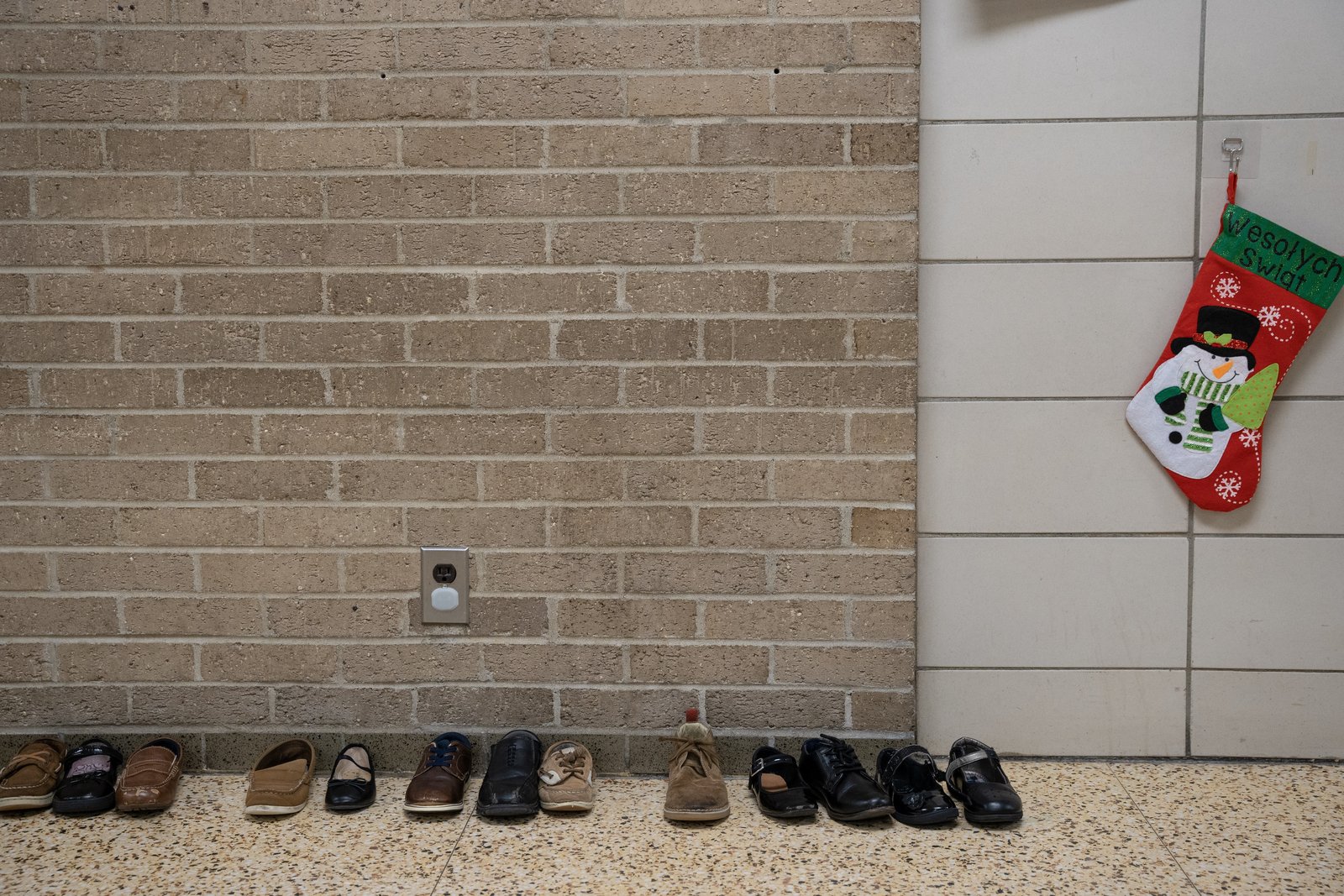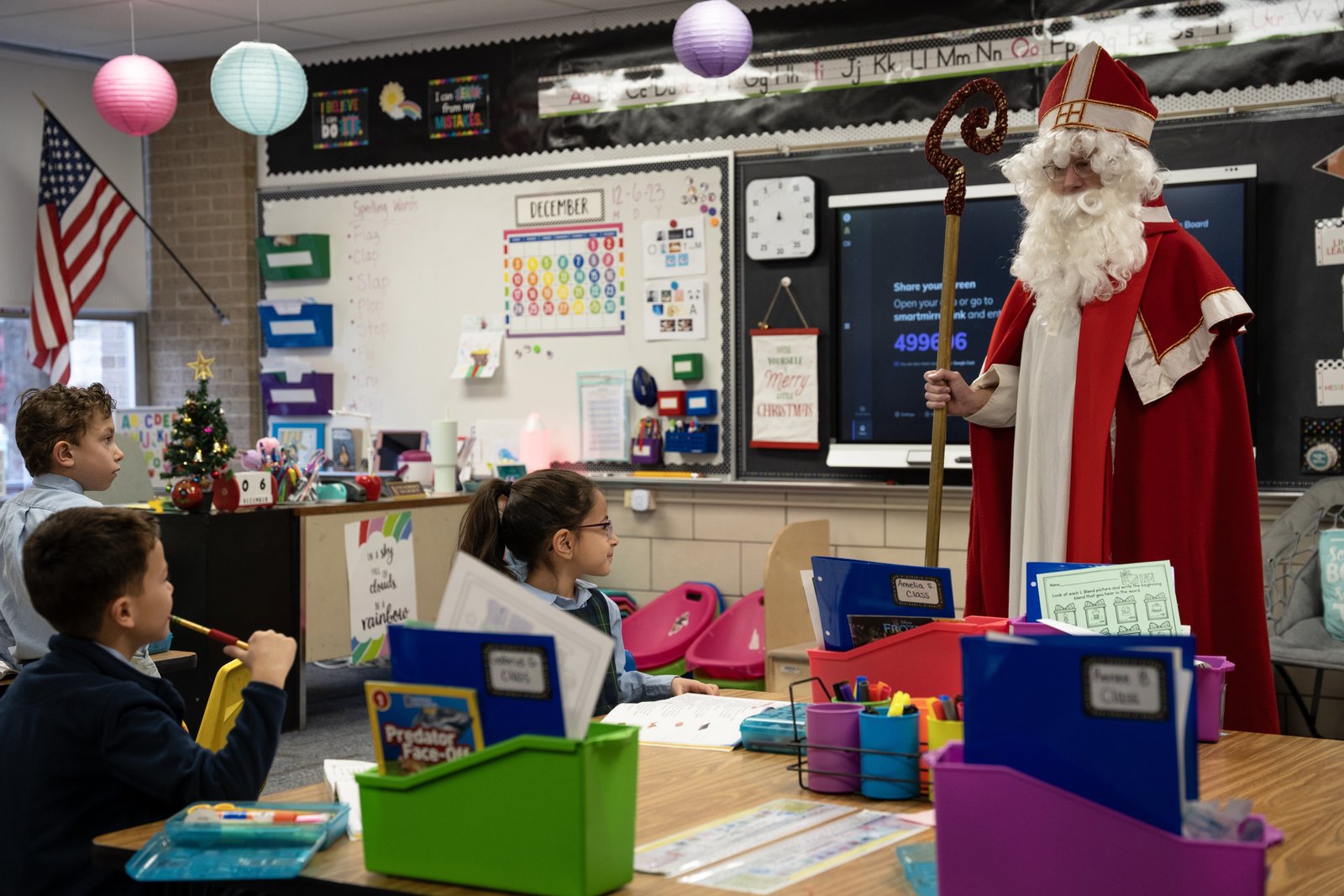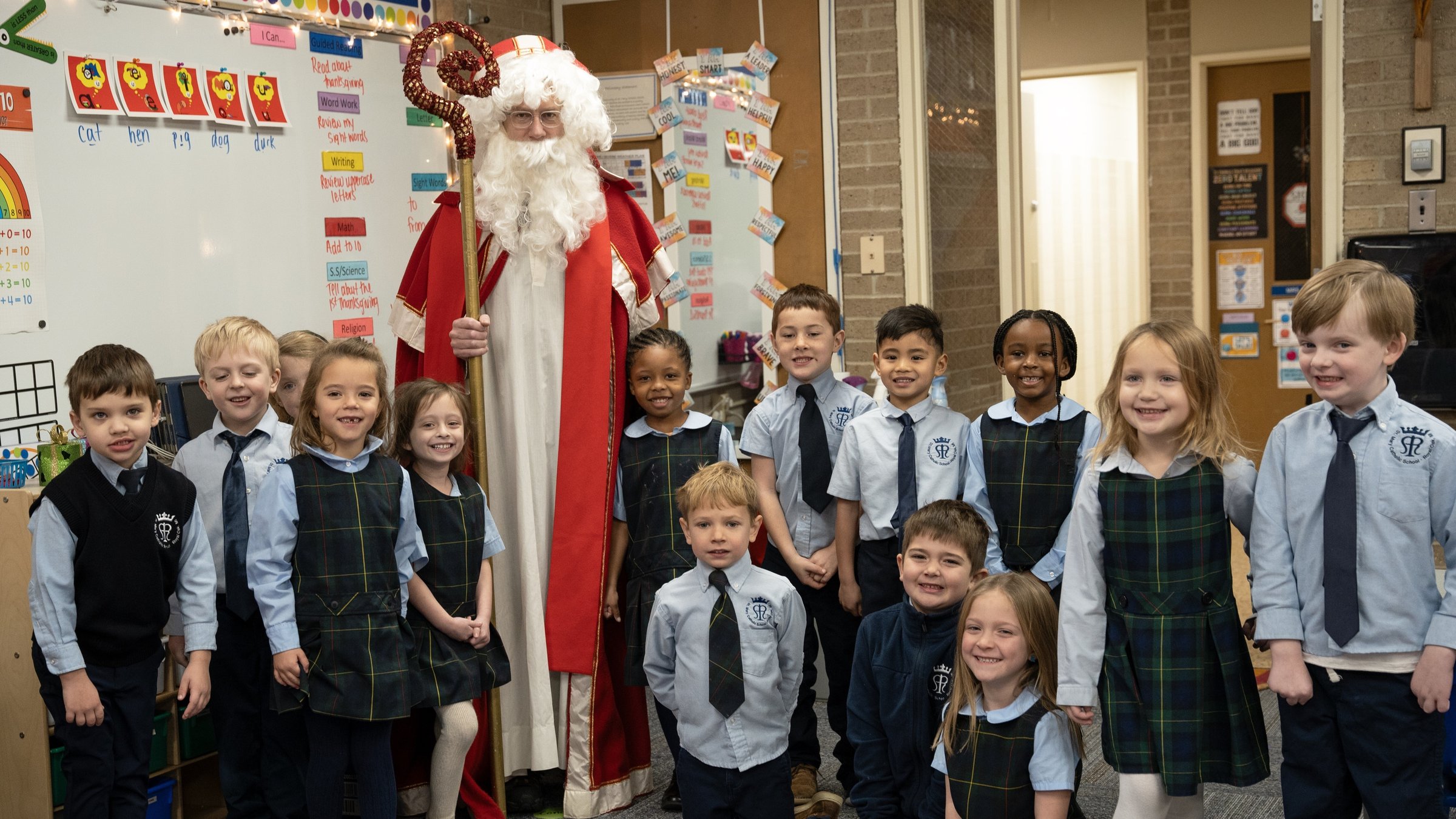As awestruck children waited in their classrooms, St. Nicholas delivered treats to students' shoes, and a lesson to their hearts
ROYAL OAK — The hallways of St. Mary School in Royal Oak were lined Dec. 6 with the tiny shoes of students who waited in their classrooms in anticipation of a visit from St. Nicholas.
As he walked from classroom to classroom, asking the awestruck, excited children about what they were learning and reminding them to be good to their parents and teachers, St. Nicholas and his helpers dropped candy and other treats into the shoes.
The feast of St. Nicholas, or “St. Nicholas Day,” is a long-standing Catholic tradition at the beginning of Advent, dating back to the 1200s in France. The beloved third-century bishop of Myra was known for his good deeds, particularly for the needy and children — he gave gifts generously and often anonymously.
The tradition of St. Nicholas Day typically involves children setting out their shoes on the evening of Dec. 6, and awakening to them stuffed with treats, such as coins, candies and oranges.
St. Mary’s has been celebrating St. Nicholas Day with their K-8 students for nearly 20 years, principal Gaby Bala told Detroit Catholic. Across the Archdiocese of Detroit, multiple schools celebrated the day, including St. Clare of Montefalco in Grosse Pointe Park, Guardian Angels in Clawson, St. Stephen in New Boston and St. Fabian in Farmington Hills.


“It has become a beautiful part of our Advent traditions here at St. Mary's as we prepare our hearts for the birth of Jesus,” Bala said. “It helps our children understand St. Nicholas and Santa Claus and his important lessons of generosity. The kids react with complete joy and wonder; the young children are incredibly amazed and excited. The older kids are very good about being a part of explaining St. Nicholas and participating in keeping that joy going for the smaller children.”
While the candy and treats are exciting, Fr. Paul Snyder, priest in solidum at St Mary Parish, views the feast day and the traditions surrounding it as an opportunity to show children the closeness of Jesus Christ.
“Embracing legends is important; they help us to understand the deeper realities of life,” Fr. Snyder explained. “All the saints point us to Christ; St. Nicholas points us to Christ in his life. He defended Jesus as truly God and truly man and gives a beautiful example of charity.”
Through the visit from St. Nicholas, played by a St. Mary's parent volunteer who wore a miter and carried a bishop's crozier, children can learn to imitate the generosity and mercy of Christ, Fr. Snyder added.
“Through St. Nicholas, we can also understand a deeper, more important reality that God, as human, is very close to us,” Fr. Snyder said.

Additionally, Fr. Snyder said Advent is a beautiful time to embrace traditions and to grow in understanding of the deep, beautiful parts of our faith, not just for children, but for adults as well, for whom the “magic” of Christmas may have long worn off.
There's no harm in letting children believe in stories, Fr. Snyder said, because they teach valuable truths within them.
“We hold onto (these traditions) when we are kids, but they have real meaning when we are adults,” Fr. Snyder said. “They help us as adults to have some wonder again instead of being cynical.”
One of the Christmas-time traditions Fr. Snyder loves to point out is the story of La Befana, an old woman who delivers gifts to children on the eve of Epiphany, which originates from Italy. Fr. Snyder said he often includes it in his homilies during Advent because the lessons remain true, no matter the age of the listener.
In the legend, La Befana was asked by the three wise men to visit the Christ Child.
“La Befana says that she doesn't have time to go with the magi to visit the Christ Child and later regrets it. She then spends 2,000 years searching for Jesus,” Fr. Snyder said. “What a great truth to teach us something about all of us; we all long to search for Jesus, and these traditions and legends are so important for us that they aren’t really in conflict with our faith.”
Copy Permalink
Christmas Catholic schools












